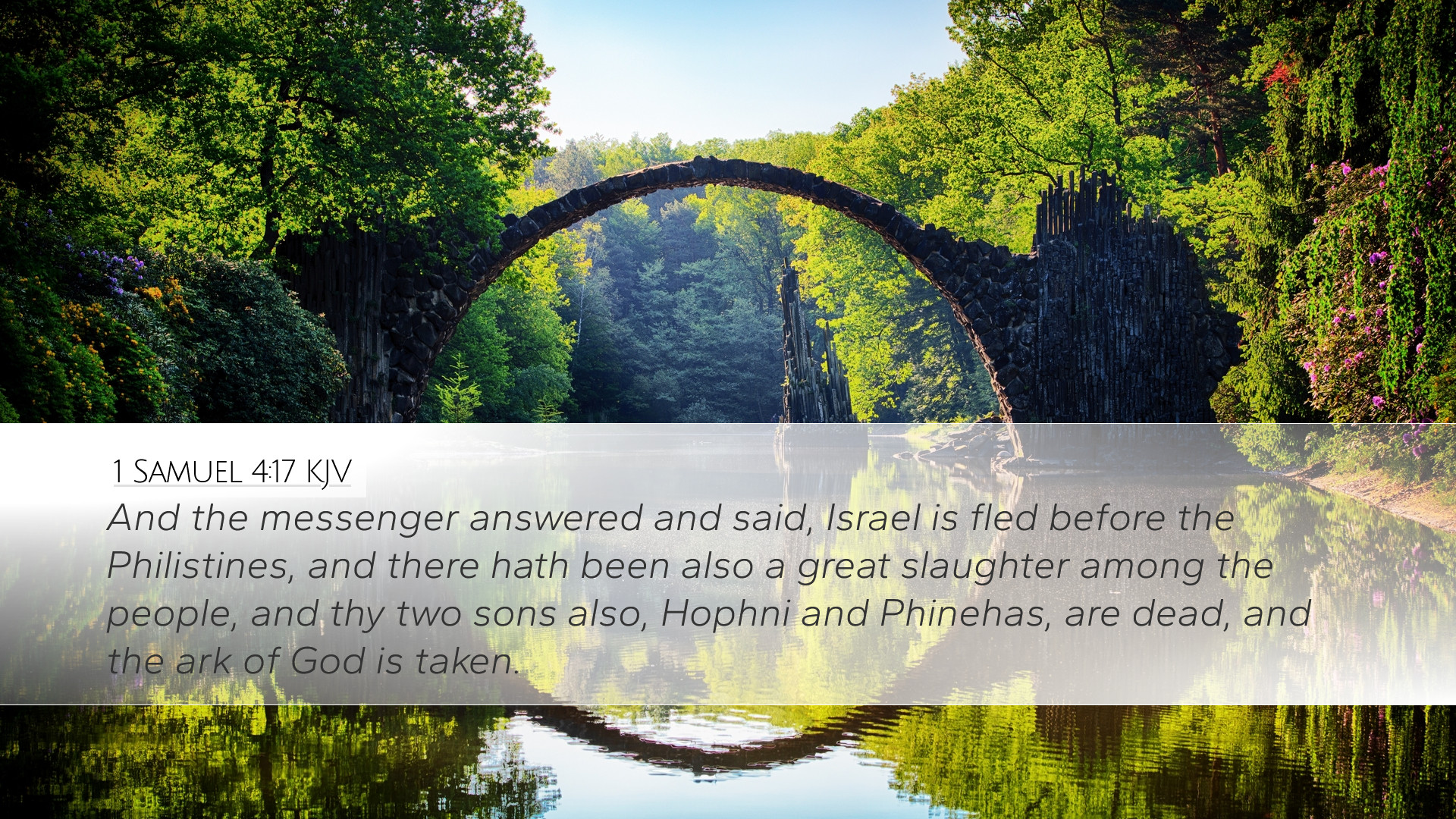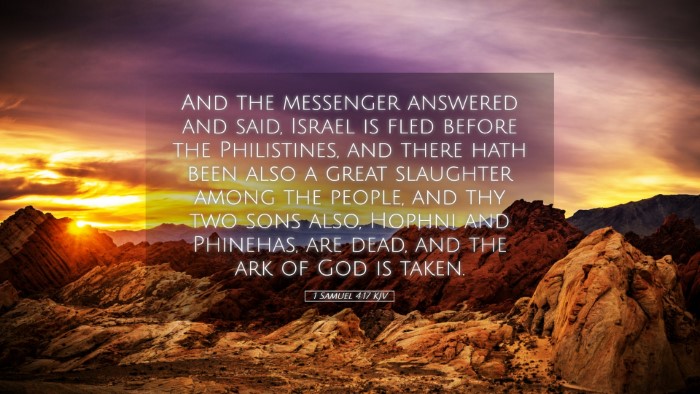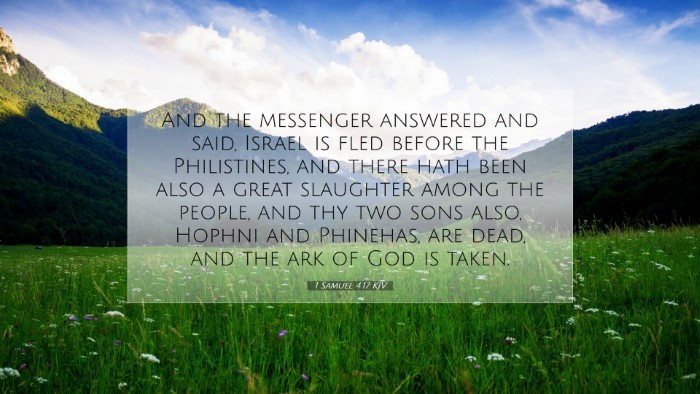Commentary on 1 Samuel 4:17
Verse: 1 Samuel 4:17
“And the messenger answered and said, Israel is fled before the Philistines, and there hath been also a great slaughter among the people, and thy two sons, Hophni and Phinehas, are dead, and the ark of God is taken.”
Introduction
The context of 1 Samuel 4:17 is critical to understanding its implications. This verse marks a pivotal moment in Israel's history, where defeat in battle leads to severe consequences for the nation and its leadership. In this commentary, we will explore insights from various public domain commentaries, including those by Matthew Henry, Albert Barnes, and Adam Clarke, to unravel the theological and historical significance of this verse.
Historical Context
The defeat faced by Israel at the hands of the Philistines represents more than a military loss; it is emblematic of the spiritual decline of the nation. The Israelites had believed they could leverage the Ark of the Covenant to ensure victory, not realizing that their reliance on symbolism over substance would lead to their downfall.
Insights from Commentaries
Matthew Henry's Commentary
Matthew Henry emphasizes the lessons learned from Israel’s defeat. He notes that the message from the battlefield was not merely one of military failure but a clear sign of divine judgment against Israel’s leaders, particularly Eli and his sons. Henry explains, “The loss of the ark was the greatest loss; it was God’s presence and favor that they lost, which no man could recover.”
Henry points out that the deaths of Hophni and Phinehas were not only significant for their families but also illustrate the inevitable consequences of sin and corruption in leadership. Their demise, coupled with the loss of the Ark, serves as a grim reminder of the severity of God’s wrath against unfaithfulness.
Albert Barnes' Notes
Albert Barnes presents a detailed analysis of the messenger’s report. He notes that the report of Israel’s flight before the Philistines signifies a broader theme of fear and abandonment. Barnes highlights, “The Ark was a symbol of God's presence, and its capture was interpreted as God giving over His people to their enemies.”
Barnes draws attention to the phrase “there hath been also a great slaughter among the people,” conveying the immense loss of life and the hopeless situation of the Israelites. He further explains that this loss starkly contrasts with the expected victory and blessings associated with the Ark of the Covenant, thereby challenging the belief that ritualistic practices could replace genuine faithfulness to God.
Adam Clarke's Commentary
Adam Clarke offers a theological insight into the repercussions of the capture of the Ark. He explains that the Ark represented God’s covenant with Israel, and its loss signals a significant breach in that covenant. Clarke asserts, “The taking of the Ark was like removing God from among His people; it was a powerful statement of His displeasure.”
Clarke elaborates on the implication of the terms used to describe the messenger. He suggests that the man who brings this grievous message symbolizes the finality of Israel's plight—a prophetic figure whose announcement ushers in despair and reflection among God's people.
Theological Implications
This scripture raises several theological points pertinent for pastors, students, theologians, and scholars:
- The Consequences of Disobedience: The narrative illustrates the inevitability of divine judgment when God’s commands are disregarded, particularly by leaders who are meant to guide and protect His people.
- The Nature of God’s Presence: The Ark signifies God's presence among His people. The loss of the Ark reflects on the nature of God’s presence, often perceived as conditional upon obedience and faithfulness.
- Faith vs. Ritual: Israel’s reliance on the Ark as a talisman of victory rather than a true representation of God’s glory highlights the danger of ritual without repentance.
- The Role of Leadership: The downfall of Hophni and Phinehas serves as a cautionary tale about the responsibilities and the heavy consequences faced by leaders in the faith community.
Conclusion
1 Samuel 4:17 encapsulates a tragic moment of loss, defeat, and realization for Israel. Through the insights of Henry, Barnes, and Clarke, we recognize the multifaceted importance of this scripture as both a historical account and a theological reflection. For pastors and theologians, this verse beckons a deeper examination of leadership and the reality of God’s presence in the midst of human failure. Understanding these dynamics is crucial for effective ministry and the faithful pursuit of God's will.


